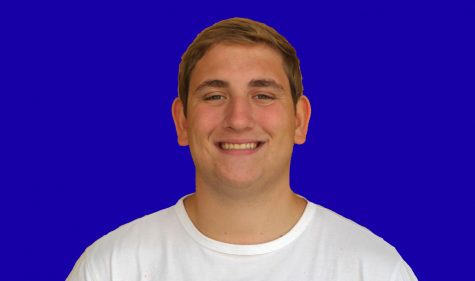1:1
February 26, 2018
Despite various delays, the 1:1 proposal, equipping each student with an individual laptop, has been approved and is intended to be implemented at Omaha North High School sometime between December 2017 and January 2018.
The program was first proposed to The Omaha Public Schools Board of Education in the fall of 2016, but due to the search for a new superintendent, budget cuts, and other legal issues, 1:1 was pushed back.
Robert Dickson, head of technology in OPS, said that the process took so long because the district’s vision for the plan was not a “one size fits all” plan. Their goal is to provide a computer to students based on the “instructional purpose” for the computer.
Being the project was proposed over a year ago, Rich Molettiere, director of technology at North High said, “We should have been there earlier…”
With the delays in the past, distribution of the laptops at North is set to start in December and continue into January.
However, before students can receive their computers, they and their guardians both must fill out liability forms.
Parents can work through Geoffrey Doctoroff in the OPS Insurance Management Office, to apply for insurance that can help cover the cost of damage. Accidental breaks and damage will be covered under warranty.
“We do not wish to have a kid that is at a disadvantage where he or she cannot study or get their assignment completed because of a hiccup with the loss of their computer,” said Gene Haynes, principal at Omaha North High.
The district is strongly encouraging that all students take part in this program, since curriculum will rely on the internet and software that comes with the computers.
With the implication of 1:1, curriculum will become Internet based. There are several programs that can assist students from disadvantaged homes obtain Internet access. Public libraries offer free internet connection and Internet providers offer discounted rates through programs like Connect to Complete by Cox Communications.
Haynes stated that he will ask supporters such as the Urban League of Nebraska and Boys and Girls Club to work with these families to get them internet access.
“We do not wish to prepare our young people for failure because of their financial stability,” Haynes said, “We want to give every young person the ‘tools in their tool box’ to be a success.”
Since the school will provide every student with a laptop, students will still not be allowed to bring personal computers to school.
Some schools, like Northwest, have already received their computers since they elected to be phase one schools. Other schools, like North, decided be phase two schools and receive their computers later.
Moletteire explained that North elected to be phase two so the process of implementing 1:1 can be tested entirely and to ensure “all the kinks have been worked out.”
According to Dickson, as laptops are implemented and used, desktop computers will become “obsolete”. The older computers will be recycled while others will be passed down to elementary and middle schools in OPS.
Some programs, such as journalism and engineering, received their computers from a special funding source and cannot be recycled for a set amount of time.


